SPANISH BAROQUE ARCHITECTURE
1/70
There's no tags or description
Looks like no tags are added yet.
Name | Mastery | Learn | Test | Matching | Spaced |
|---|
No study sessions yet.
71 Terms
FRENCH BAROQUE ARCHITECTURE
Associated with the word ELEGANT
Focus on classical elements that is elevated more with materials, such as gold.
Its is the msot symmetrical and balance architectural style
FRENCH BAROQUE
Characterized by grandeur, symmetry and restrained elegance compared to the more flamboyant Italian Baroque style
Key features: Symmetry and Blance – buildings are typically symmetrical with careful arranged facades and floor plans that convey a sense of order and control.
SAINT-GERVAIS-SAINT-PROTAIS OR 4TH ARRONDISSEMENT
By SALOMO DE BROSSE in Paris France
Earliest known French Baroque Façade.
Famous for being the workplace of the Couperin family- a reowned dynasty of French organists and composers with FRANCOIS COUPERIN
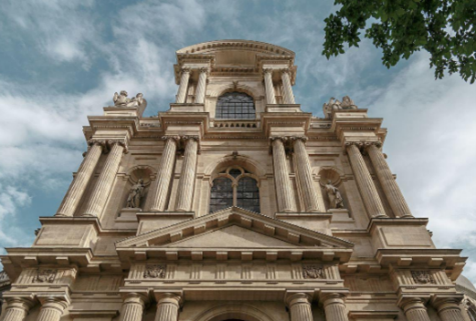
LUXEMBOURG PALACE
By SALOMO DE BROSSE in Paris France
Commisioned by MARIE DE’ MEDICI – widow of King Henry IV, as her personal residence
Modeled after the Palazzo Pitti in Florence, Italy, reflecting Marie de’ Medici’s Italian heritage.
Currently, it houses the French Senate.
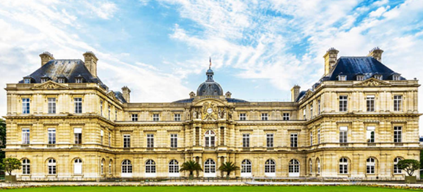
DOME DES INVALIDES
By JULES HARDOUIN-MANSART in Paris France
A sturning barogue structure designed by architect Jules Hardouin-Mansart.
Features a striking golden dome that rises to 107 meters, making it a prominent landmark in the city.
Originally built as part of the Hotel des Invalides to house war veterans
The dome now shelters the tomb of Napoleon Bonaparte, adorned with intricate frescoes and clasical ornamentation that reflect France’s military glory and architectural grandeur.
Pinnacle of French Baroque
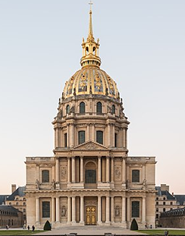
ENGLISH BAROQUE ARCHITECTURE
Associated with the word RESTRAINED
Believe to be the most powerful nation; inspired by Palladian Architecture (very demure)
ENGLISH BAROQUE
While showcasing the dramatic features of the Baroque style, it paved the way for a shift towards the more restrained and academically correct fomrs of Palladianism.
This transition emphasized harmony and symmetry, blending grandiosity with the purity of classical design, as seen in the works of of architects such as SIR CHRISTOPHER WREN & INIGO JONES.
The 3 key figures in English Baroque
1. Andrea Palladio
2. Sir Christopher Wren
3. Sir John Van Brugh
GREAT FIRE OF LONDON
Sunday, September 02 to Thursday, September -6, 1666 (5 days)
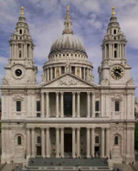
SIR CHRISTOPHER WREN (1632 - 1723)
Was a prominent English archtiect known for designing St. Paul’s Cathedral – a masterpiece of english baroque architecture
He significantly influende London’s arhcitectural landscape by rebuilding pver 50 churches after the Great Fire of 1666, estbalishing hemself as the key figure in English architecture
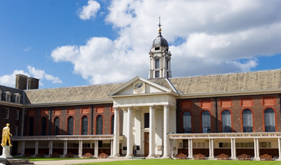
ST. PAUL’S CATHEDRAL
By SIR CHRISTOPHER WREN in the City of London, United Kingdom
Features a magnificent dome that rises 111 meters (365 feet) dominates the London skyline.
The interiors is adorned with beautiful mosaics, paintingns and sculptures, and the cathedral serves as a symbol of resilience and national pride, hosting significant events such as state funeral and royal ceremonies.
ROYAL HOSPITAL CHELSEA
By SIR CHRISTOPHER WREN in London, United Kingdom
Impressive complex was established as a retirement home for British Soldiers and features a grand façade, classical detailing and beautifully landscaped gardens, exemplifying Wren’s architectural style andh is contributions to British Baroque architecture.
SIR JOHN VAN BRUGH (1664 - 1726)
Was a key figure in English Baroque architecture
Reowned for his bold designs, chracterized by eleaborate ornamentation, grand scale and expressive classical elements.
His notable works are Blenheim Palace and Castle Howard exemplify his unique style, emphasizing geometric forms and theatrical entrances that significantly influenced early 18th century architecture.
CASTLE HOWARD
By SIR JOHN VAN BRUGH in North Yorkshire, England, United Kingdom
A stunning exmaple of Englsih Baroque architecture, featuring faade with a prominent dome and lavishly decorated interiors.
Set within 1000 acres of beautifully landscaped gradens, it remains a family-owned estates, currently home to the Earl of Carlisle and his family.
BLENHEIM PALACE
By SIR JOHN VAN BRUGH in Oxforshire, England, United Kingdom
The principal residence of the Dukes of Marlbrough
Considred as the most monumental mansion in england.
It is the only non-royal residence in Englands to the title of palace, granted by Queen Anne in 1704.
it is the birthplace of British Prime Minister WINSTON CHURCHILL
SPANISH BAROQUE ARCHITECTURE
Associated with the word DRAMATIC
CHURRIGUERESQUE
Highly ornate: spanish baroque style known for its intricate, decorative details in facades and altarpieces.
Excessive Ornamentaton: emphasizes extravagant designs with twisted columns and dramatic sculptural elements.
SPAIN AND ITS COLONIES
The style was most prominent in the late 17th and 18th centuries and is widely seen in Spanish churches, palaces and colonial buildings in Latin America, blending European Baroque with local traditions.
Mexico, California & Filipinas
What are the 3 countries colonized by Spain?
JOSE BENITO DE CHURRIGUERA
Architectural Innovation: He pioneered the highly ornamental and dramatic Churrigueresque style, blending Baroque elements with intricate detailing and bold eleaborate designs.
Legacy and Influence: By popularizing this ornate style, his influence spread beyong Spaint to Latin America, shaping the look of colonial architecture for generation.
SAN CASTEBAN ALTAR
he intensified the decorative elements of Baroque architecture, blending classical forms with highly intricate and exaggerated ornamentation.
He drew inspiration from renaissance and baroque motifs but pushed boundaries bold, lavish details particularly in altarpieces, wherehe experimented with twisted columns, sculptural flourishes and sense of vertical movement.
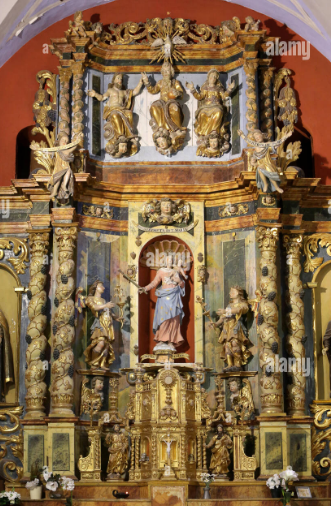
SAN CASTEBAN ALTAR
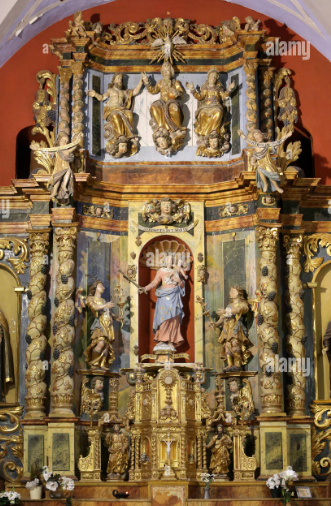
CONJUNTO PALACIO IGLESIA DE SAN FRANCISCO JABIER Y LAS DOS PLAZAS IMMEDIATAS
Designed by JOSE BENITO DE CHURRIGUERA in 1709
Part of an industrial and residential complex for Juan de Goyeneche – a prominent Spanish entrepreneur.
The palace showcases a sober rectangular façade with balustrades and rusticated stonework, contrasting with the more elaborate Churrigueresque façade of the church, featuring twisted columns and intricate sculptural details around the entrance.
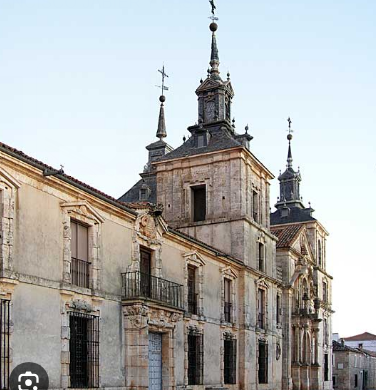
PLAZA DE FIESTAS
Was created in the early 18th century as part of Juan de Goyeneche’s ambitius industrial and urban project, designed by Jose Benito de Churriguera.
It served as a central space for public evenets and festivals, reflecting the Baroque traditions of incorporating grand palzas into urban designs to promote social interaction and community life.
Back plaza
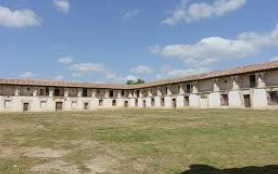
PLAZA DE LA IGLESIA
Intended as a religious and communal gathering space, highlighting the Baroque tradition of integrating churches with public squares to emphasizes the centrality of faith in daily life.
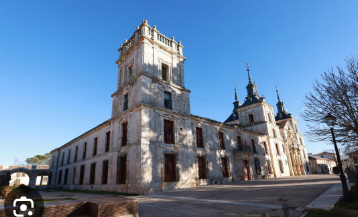
SANTIAGO DE COMPOSTELA CATHEDRAL
In Galicia, Spain
Primarily designed by BERNARDO DE LA TORRE & FERNANDO DE CASA Y NOVOA during its contruction in the 18th century.
Although its orgin date back to the 11th century with earlier architects such as CALIXTUS II and GERMAN DE MOISSAC contributing to its development.
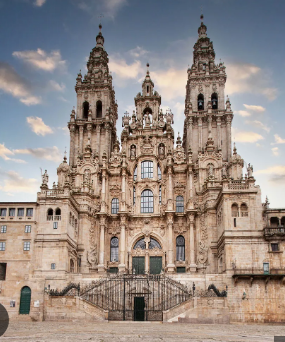
BOTAFUMEIRO
One of largest Thuribles (incense burners) in the world
Used during special religious ceremonies
Weighing about 80kgs (176lbs)
It can swing from the cathedrals ceiling to create a stunning visual and aromatic experience, filling the church with fragrant incense as it is propelled acress the transept by a team of 6 men.
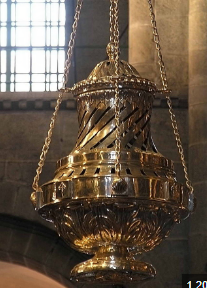
DARAGA CHURCH OR NUESTRA SENORA DELA PORTERIA
Officially known as the Our Lady of the Gate Parish Church- a historic church located in Daraga Albay, Philippines
Built by FRANCISCAN ordered in 1773.
A beautiful baroque church is reowned for its stunning façade made of volcanic stone, which offers a unique tecture and appearance that complements the backdrop of Mayon Volcano.
The church features intircate detailing and bell tower, making it a significant cultural and architectural landmark in the region, as wel as a popular destination for pilgrims and tourist.
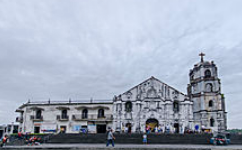
SOLOMONIC COLUMNS
helicon column, characterized by a spiraling twisting shaft like a corkscrew.
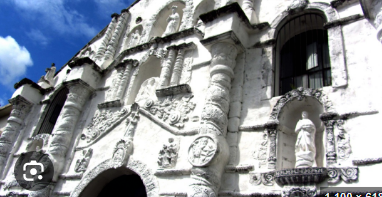
SAN JUAN DE DIOS-HOSPITAL
Oldest hospital in the Philippines
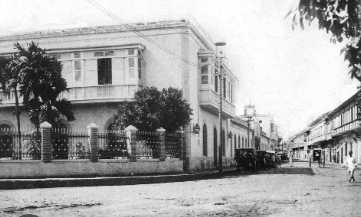
ROCOCO ARCHITECTURE
Evolved from Baroque: Rococo architectural style if decorative art that evolved from the Baroque originating in france in the early 18th century, characterized by its lightness and elegance compared to the grandeur of Baroque
Fanciful Curved Forms: it is distinguished by fanciful curved spatial forms, which creates a sense of fluidity and movement in design, often incorporating asymmetrical elements that add to its dynamic appearance.
ROCOCO ARCHITECTURE
Lightness, Swirling forms, Flowing lines, Ornate Stucco Work & Arabesque Ornaments
It is characterized by its lightness and elegance, featuring swirling forms and flowing lines that create a sens of movement and fluididty in the design.
The ornatestucco work and intricate arabesque onrmaments enhance its delicacy, resulting in spaces that evoke a whimsical and enchanting atmosphere.
ROCAILLE
- French word for French rococo
- a decorative style from the 18th century associated with the Rococo movement, featuring intricate and asymmetrical designs inspired by natural forms like shells and plants.
- It is commonly used in interior design and decorative arts, creating a whimsical aesthetic that emphasizes lightness and fluidity.
CHINOSSERIE
- Decorative style that emerged in Europe during the 17th & 18th centuries
- Characterized by its imitation of Chinese artistic inlfuences andm otifs
- Incorporates elements such as elaborate landscapes, pagodas and floral patterns often combined with Western artistic techniques, to create an exotic and fanciful representation of Chinese culture, reflecting the fascination with the east during that period.
CHINESE HOUSE
A tea house, with sculptures including Confucious
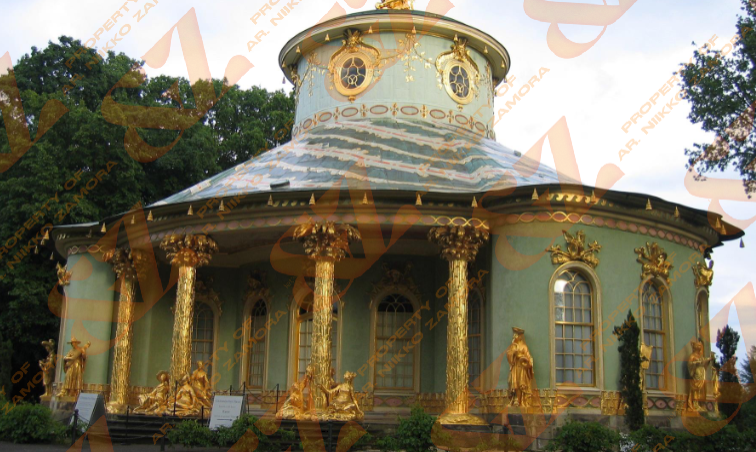
WIESKIRCHE
The Pilgrimage Church of Wies in Bavaria Germany
By Dominikus Zimmerman
A remarkable example of rococo architecture, characterized by its harmonious proportions, elegant curves and richly adorned interior featuring intricate stucco work and frescoes by Franz Xaver Simm.
Completed in 1748, the church showcases a dramatic vaulted ceiling, ornate altars and striking façade with a central dome all designed to create a sense of lightness and divine beauty, contributing to its designation as UNESCO World Heritage Site.
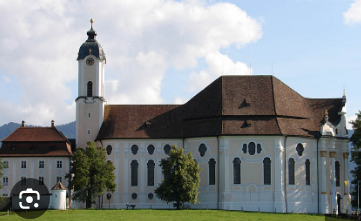
AMALIENBURG
By FRANCOIS DE CUVILLIES
Built as a hunting lodge for ELECTOR MAX EMANUEL OF BAVARIA, serving as a retreat for hunting and leisure activities in the expansive ground of the Nymphenburg Palce Park.
Constructed between 1734 and 1739
Designed to provide an elegant space for entertaining guests and hosting royal hunts, refelcting the opulence and lifestyle of the Bavarian court during the Rococo period.
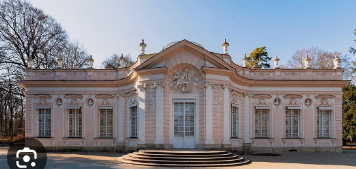
SMOLNY CONVENT
Designed by BARTOLOMEO RASTRELLI in the mid-18th century
A stunning example of Russian Baroque architecture located in St. Petersburg, Russia
Originally intended as convenet for noblewomen
It plays a significant role in the life of Catherine the Great, who established it to educate young girls symbolizing her efforts to promote women’s education and empowerment in Russia.
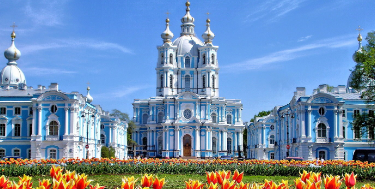
BORROMINI
created a structure of St. Agnese where she is not lookingat the fountain.
FONTANA DEI QUATTRO FIUMI OR FOUNTAIN OF THE FOUR RIVERS
Located in Piazza Navona, Rome, Italy
By GIAN LORENZO BERNINI
Features four monumental figures representing the major rivers of the known continents at the time – Nile, Ganges, Danuber & Rio de la Plata – surrounding an Egyptian Obelisk symbolizing the global reach of the Catholic church.
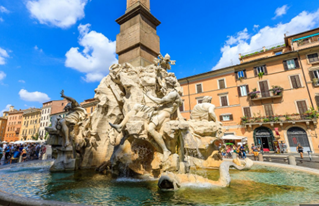
SANT’AGNESE
By GIROLAMO RAINALDI reworked by FRANCESCO BORROMINI
Located in Agone Piazza Navona, Rome, Italy.
Sits on the site of the ancient stadium of Domitian, believed to the the place where St. Agnese was martyred.
Boromini had a feud with Bernini, and boromini was commisioned to build the Sant’Agnese. However, Bernini commisioned the fountain in front of the church.
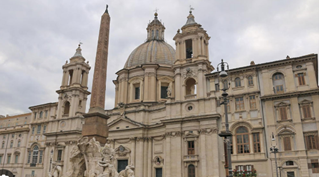
SCALINATA DI TIRNITA DEI MONTI OR SPANISH STEPS
By FRANCESCO DE SANCTIS in Rome, Italy
The steps are “Spanish” because of the Buorbon Spanish Embassy located nearby, despite being designed by an Italian Architect.
It appeared in several films, including Roman Holiday starring Audrey Hepburn and Gregory Peck, making them a famous tourist spot.
Have 135 steps
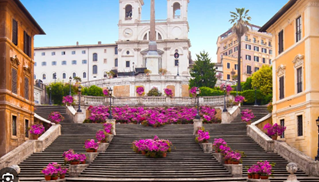
DOME
oval-shaped dome with intricate coffered patterns, emphasizing verticality and light.
SAN CARLO ALLE QUTRO FONTANNE OR SAINT CHARLES AT THE FOUR FOUNTAINS
In Rome, Italy
By FRANCESCO BORROMINI
One of the only churches with an oval dome
Only baroque dome that is oval in shape- provides more emotionality
Sad ending: after he created this he stabs himself and wrote his final memoir
CHURCH OF THE GESU OR IL GESU
By GIACOMO DELLA PORTA and GIACOMO BAROZZI DA VIGNOLA
The first true baroque façade
Have Niches & Pilasters – fake columns protruding on the wall
Established by St. Ignatius de Loyola, the mother church of jesuits
most important church in the Jesuit community (Ateneo)
CHURCH OF THE GESU
Opulent and dynamic churches with irregular shapes and extravagant ornamentation
Uneducated; creates an emotional attachment to make the church powerful; emotions is directly related to the church.
Heavily intertwined with churches, and catherdrals.
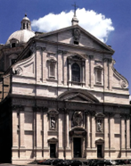
BAROQUE ITALIAN
Opulent and dynamic churches with irregular shapes and extravagant ornamentation
Uneducated; creates an emotional attachment to make the church powerful; emotions is directly related to the church.
Heavily intertwined with churches, and catherdrals.
Contrast of light and shadow or Chiaruscurro
A technique used by CARAVAGGIO
The famous painting of Caravaggio is known as Beheading of Goliath by David – example of chiaroscuro.
This technique produces or create a curvilinear movement
One example is Saint Francis of Assisi in Ecstasy (EMOTIONALITY) by CARAVAGGIO
Related to Chiaroscuro, have a black backdrop with heavily or harsh lighted subject.
Caravaggio’s painting is always a person caught in a movement; paintings creates engagement on the viewers.
BERNINI, CARAVAGGIO & BOROMINI
Øemphasize dramatic composition and often provided contrasting elements- mostly shown in Caravaggio’s art.
Baroque Diagonalism – very dynamic, showcases the diagonalism and dynamism Italian baroque through ornamentation such as murals and paints woth contrast of light and shadow.
ITALIAN BAROQUE ARCHITECTURE
Associated to the word DYNAMIC as structures provide a sense of movement.
Associated with curvilinear lines and elements, and produces emotional intensity.
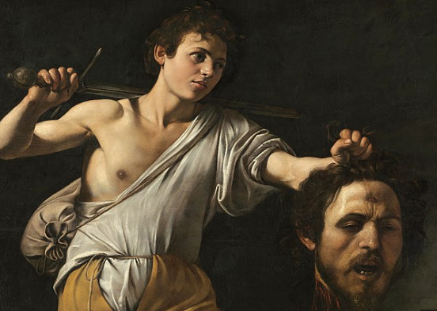
GERMAN BAROQUE ARCHITECTURE
ZWINGER PALACE
SPANISH BAROQUE ARCHITECTURE
CHURRIGUERESQUE ARCHITECTURE –very dramatic
ENGLISH BAROQUE ARCHITECTURE
ST. PAUL CATHEDRAL
FRENCH – BAROQUE ARCHITECTURE
SAINT – GERVAIS SAINT - PROTAIS
ITALIAN BAROQUE ARCHITECTURE – IL GESU
mother church of the Jesuit denomination Church of All Churches in Jesuit education and religion.
PILASTER
flattened rectangular column that projects slightly from a wall serving both structural and decorative purposes. It often features elaborate detailing such as ornate capitals and bases and is used to create a sense of depth, grandeur in façade and interiors.
False column protruding on the exterior
NICHES
decorative recesses that houses sculptures or statues enhancing the visual drama and richness of the façade. While creating focal points to draw the eye and convey religious or historical significance.
Often contribute to the overall sense of movement and depth in design reinforcing the emotional impact of architecture.
BAROQUE ARCHITECTURAL EXTERIORS
NICHES and PILASTER
ARCHITECTURE OF THE CURVED LINES
Baroque architecture was called the architecture of curved lines; deliberately impress the general public
Most lavish of all styles
Deliberate intent to impress
Attempt to make art more life-like and more sensual
Robust proportions, rich colors
BAROQUE PAPACY
was a movement within the catholic church during the 17th and 18th century aimed at reaffirming papal authority. Addressing corruption and revitalizing the catholic church and doctrine and its practices in response to its protestant reformation.
Its primary goal is to glorify the catholic church.
The counter-reformation influence baroque architecture by encouraging grand theatrical design that inspired awe and reinforced the power and glory of the catholic church.
Primary goal is to create structures with dramatic façade, opulent interiors and intricate ornamentation intended to captivate and emotionally engage worshipers.
PROTESTANT REFORMATION
BAROQUE REFORMATION
CATHOLIC CHURCH
believed that the earth is the middle of the solar system
Galileo Galilei was arrested for his discoveries and spreading that the sun is definitely the center of the solar system. As a result they created Protestantism to vie away the practices and belief of the catholic church.
HELIOCENTRISM
states that the sun is the middle of the solar system
Galileo Galilei through the invention of the telescope, discovered that the earth is not definitely not in the middle of the solar system, whereas the sun is in the middle of the solar system.
Enlightenment of Men or Scientific Revolution
introduced a wave of scientific discoveries including the printing press, microscope, telescope and most controversial is Heliocentrism.
PROTESTANTISM
a religion that does not believe that you can buy your way to heaven.
Went hand-in-hand with the enlightenment as both movement championed individuality, critical thinking and inquiry.
PROTESTANT REFORMATION
goes hand-in-hand with renaissance period
saw the rise of the religious movement in the 16th century, led by the figures such as Martin Luther, Copernicus and Galileo Galilei which broke away from the catholic church and figth away with their beliefs and practices.
KING CHARLES THE II OF SPAIN
The pinnacle of negative legacy, suffered from physical and mental disabilities because of in-breeding.
Embody the disastrous consequences of royal lineages that had forsaken the natural order in desperate bid to cling into the divine power.
HABSBURG JAW
Catholic church
Wielded immense power over much of Europe influencing education, politics and overall social life of the European. Its authority was so apparent prior to renaissance era, that monarchs even ask the blessing of the pope or catholic church in order for the people to realize that they the divine intervention to rule over mankind.
They proclaimed that European monarch were handpicked by God himself, elevating them above all earthly authority and making the rain untouchable by mere mortals.
Monarchy is associated with religion.
Had control over Europe for much of European history up until renaissance period.
One of the most corrupt institutions in the world.
BAROCO
irregularly shaped pearl
grandeur or elaborate
comes from the Latin word VERRICA WART – it is believed to be ugly.
In Latin word literally means WART
Started off as a negative connotation
It also means Bizzare – focus on bizzare architectural styles, basically fantastic and irregular shape.
BAROQUE
It is about grandeur; makes people emotional
Music, painting, sculpture and architecture
Ornamentation and contrast
Make people be amused or at awe